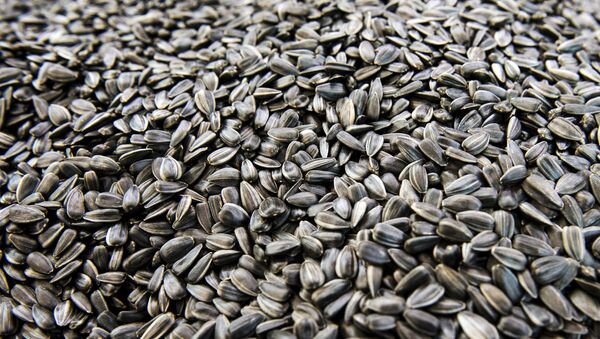Researchers at the National University of Science and Technology MISiS (NUST MISiS) in collaboration with Kostychev Ryazan State Agrotechnological University and Derzhavin Tambov State University have tested a new innovative fertilizer based on nanopowders of transition metals, which they claim can increase crop productivity by 25 percent.
READ MORE: Flatulent Shellfish Causing a Stink in Global Warming, Study Finds
Certain microelements (iron, cobalt, copper, zinc, molybdenum and other metals) are essential components of many biologically active compounds, such as proteins, enzymes, hormones, vitamins and pigments in animals and plants. Various life processes, as well as metabolic processes, cannot take place without them despite the fact that the required quantity is very small (about one or two atoms in pro-protein or enzyme molecules). As the key element in enzymes, metal trace elements directly influence a crops immunity, viability and resistance to pests and diseases.
Russian researchers have developed a new generation of fertilizers based on metal nanopowders. The new fertilizers can significantly optimize the technology of a range of agrochemical processes, specifically, it could reduce the number of processes to just the pretreatment of seeds with an agent containing the necessary minerals in nanoform.
"Particles of transition metals (such as iron, copper, cobalt) synthesized at NUST MISiS have a powerful stimulating effect on the crops in the initial growth phase. Thus, we can now supply future crops with all the necessary minerals at the seed stage, which will lead to an increased field germination rate and adverse factor resilience, and, eventually, to larger harvests. Tests showed a 20 to 25 percent increase," said Alexander Gusev, project manager and senior researcher of the Department of Functional Nanosystems at NUST MISiS.
The main difficulty was that the nanoparticles, due to their high activity, tend to quickly coagulate and form large aggregates. Researchers managed to solve this problem using a complex approach, which involved organic stabilizers and an ultrasonic treatment of colloidal solutions. Now the researchers, having received positive results in field research, have yet to learn how the new fertilizer will affect different crops in different soils. After a successful comprehensive evaluation of the fertilizer's ecological safety, researchers will be able to recommend it for general use.
In agriculture today, minerals are introduced into the soil in the form of soluble salts. Crops only receive the necessary nutrients from the soil containing this solution. Once the solution is washed out by rain or irrigation, the crops will require a new dose of salts. But when these chemicals find their way into groundwater, they disrupt the ecosystem balance. Using this new generation of fertilizer, however, will resolve this issue: now the necessary nutrients can be introduced into plants' structure without causing any damage to the soil.
There are many reasons these fertilizers might be economically effective. First, cost amounts to just about one gram of dry matter per ton of seeds. Second, the number of cultivation processes are reduced to just one seed treatment, which will reduce labor costs and the cost of using machinery.




